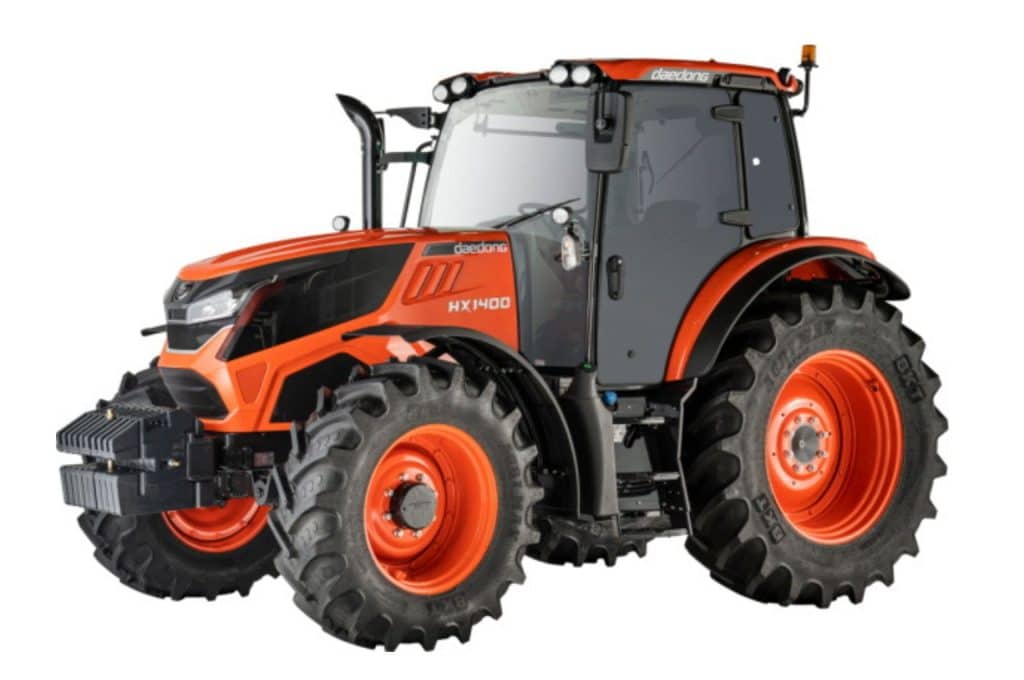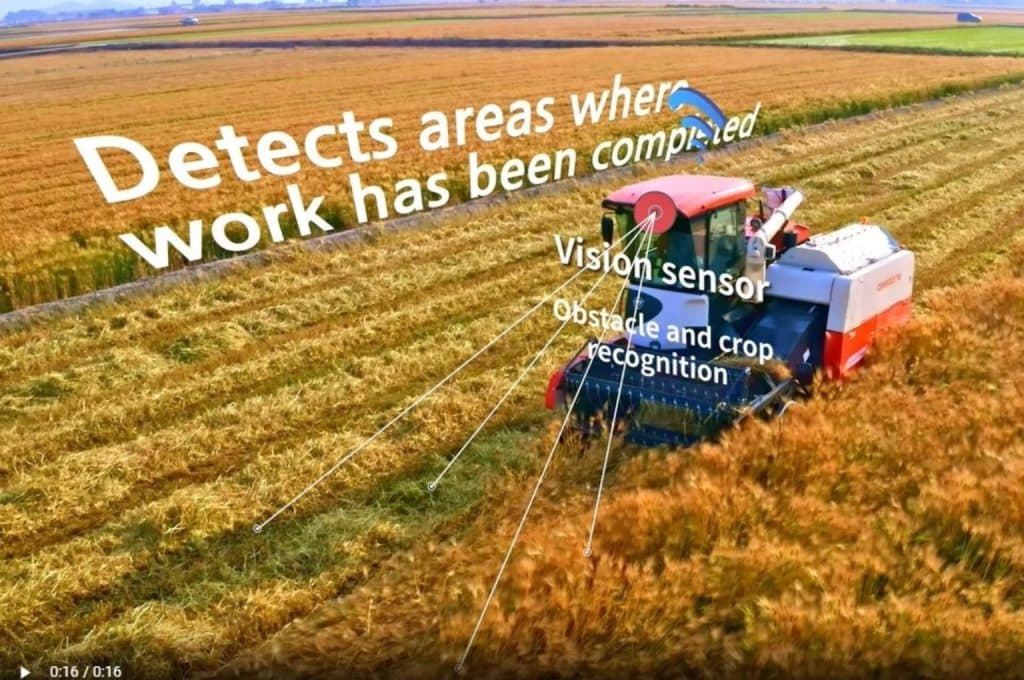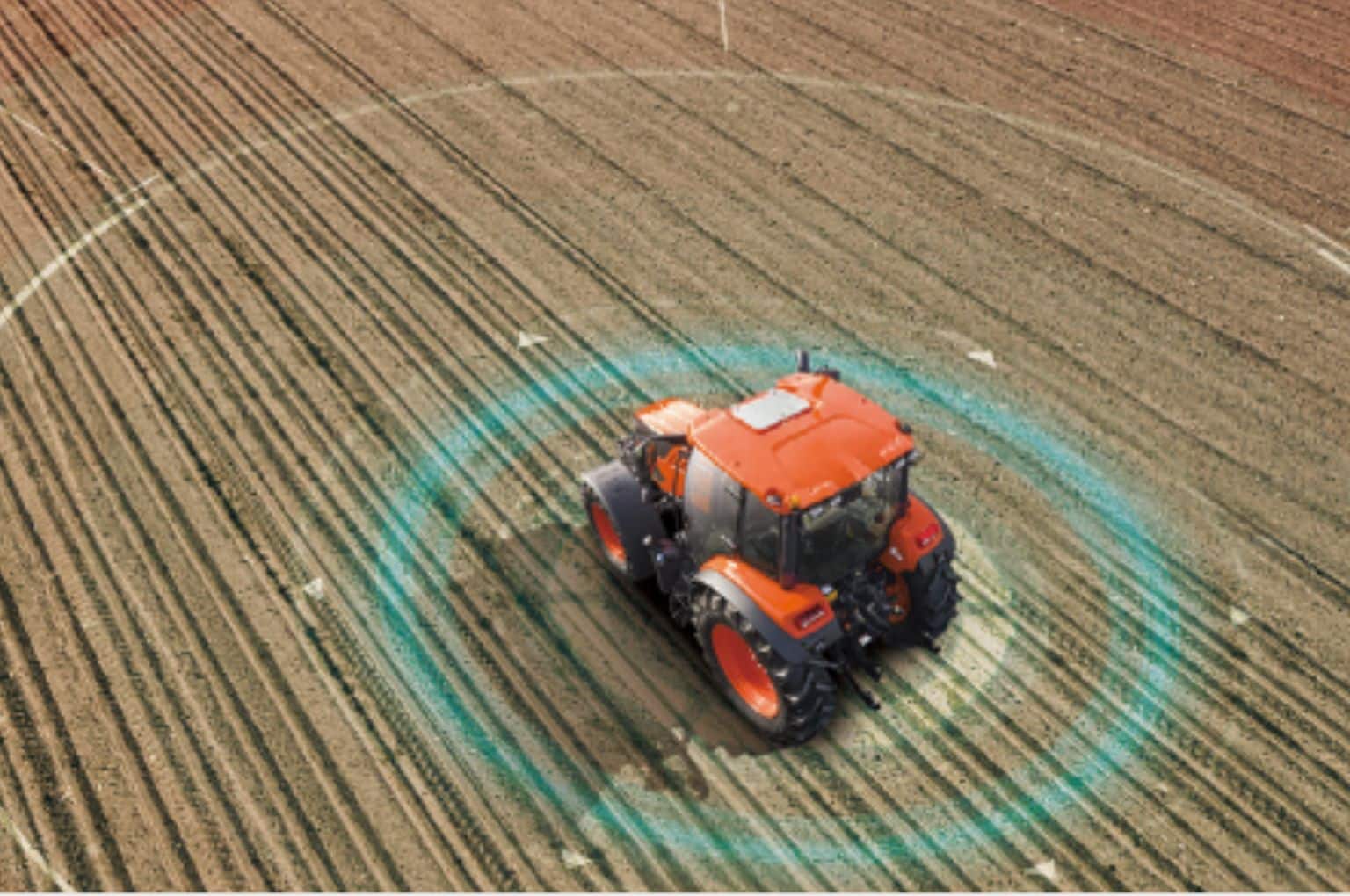Daedong’s HX tractor and DH6135 combine, both of which have autonomous operational functions equivalent to level-3 autonomous driving for agricultural machinery, have passed the national testing in Korea for autonomous driving (straight and turning maneuvers).
According to government standards in Korea, autonomous driving for agricultural machinery is largely divided into five levels: level-0 (remote control); level-1 (automatic steering); level-2 (autonomous driving), level-3 (autonomous operating); and level-4 (unmanned autonomous operating).
Level-1 requires the agricultural machinery to be able to drive autonomously in a straight line, whereas level-2 requires the machine to drive autonomously along a pre-determined work route without operator input while being able to drive in a straight line and turn at controlled speeds.
Level-3 requires the agricultural machinery to perform various tasks autonomously while following the work route without any operator input or control, and level-4 requires environmental awareness and artificial intelligence (AI) that enables the machinery to work completely unmanned and autonomously without an operator.
Continuous investment
Daedong previously unveiled a rice transplanter and tractor in 2019 and 2021, respectively, capable of level-1 autonomous driving. With continued investment, the company has been able to independently develop autonomous operating technology equivalent to level-3 autonomous driving, which includes creating/following work routes in the field, detecting safety hazards, setting and controlling attachments, and managing operational data.
Level-3 technology was recently installed on the HX tractor and DH6135 combine for testing. With this product, Daedong passed the government’s testing for level-3 autonomous driving (agricultural machinery category) that requires agricultural machinery to move straight within ±7cm of a self-generated work route, and remain under control when turning. The company expects to launch these two models sometime during the fourth quarter of this year. Moreover, Daedong is hoping to launch a level-4 autonomous driving tractor by 2026, which is why it has begun collecting data on agricultural environments and farmland from earlier this year.
Daedong’s autonomous HX tractor and DH6135 combine that recently passed government testing uses the Global Navigation Satellite System (GNSS), commonly known as GPS, and ultra-precise Real-Time Kinematic (RTK) location information to accurately locate the vehicle within 2cm of its actual position when stopped and within 7cm when operating. This will make the HX tractor and DH6135 the most accurate of their kinds in Korea.
Dual RTK sysyem
Meanwhile, RTK enables high-precision autonomous driving by accurately computing the locational information of agricultural machinery using data received from the GNSS, which could be off by a few meters. Here, RTK technology narrows down the deviation to just a few centimeters at the reference station. Daedong uses a dual RTK system that utilizes the reference stations of the National Geographic Information Institute and Korean telecommunication companies, providing 24-hour uninterrupted autonomous driving capabilities without any dropped connections or data reception. The company also takes full advantage of being able to obtain more accurate positioning information via more reference stations, providing ultra-precise location information to agricultural machinery through twice as many reference stations compared to other agricultural machinery companies, and demonstrating more accurate and detailed work route tracking.
Daedong is for farmers who drive agricultural machinery on farmland, i.e. off-road, for up to eight to ten hours a day on average during the peak farming season. With level-3 autonomous operating technology, which enables machinery to execute tasks without the operator having to use the steering wheel or press buttons, can improve work efficiency while minimizing work fatigue. Also, the company is hoping that level-3 agricultural machinery can help even novice farmers navigate the difficulties of operating heavy equipment and perform just as productively as veteran farmers with more experience.
Unmanned operations
Won Yu-Hyun, Co-CEO of Daedong, said, “At Daedong we planned for our vision for the future involving unmanned agricultural machinery, and we managed to pass government testing using our own autonomous driving technology this year.” He continued, “Our latest achievement means we have secured another type of core technology necessary for the development of agricultural robots. We want to use this to develop AI-powered unmanned agricultural machines as well as robots, and also build agricultural solutions and platforms under our vision of precision agriculture and unmanned agricultural operations.”



![RightSpot Ad Template Digital-1400×190-px[76] Ag Leader RightSpot](https://world-agritech.com/wp-content/uploads/elementor/thumbs/RightSpot-Ad-Template-Digital-1400x190-px76-r316mmc0hgoob9qxmklllnnbxta1nlj7t2vjkoyeek.png)







